 Drama Where I'm From: An Abridged History of K-drama in Jamaica
Drama Where I'm From: An Abridged History of K-drama in Jamaica

TIMES VS KAIROS
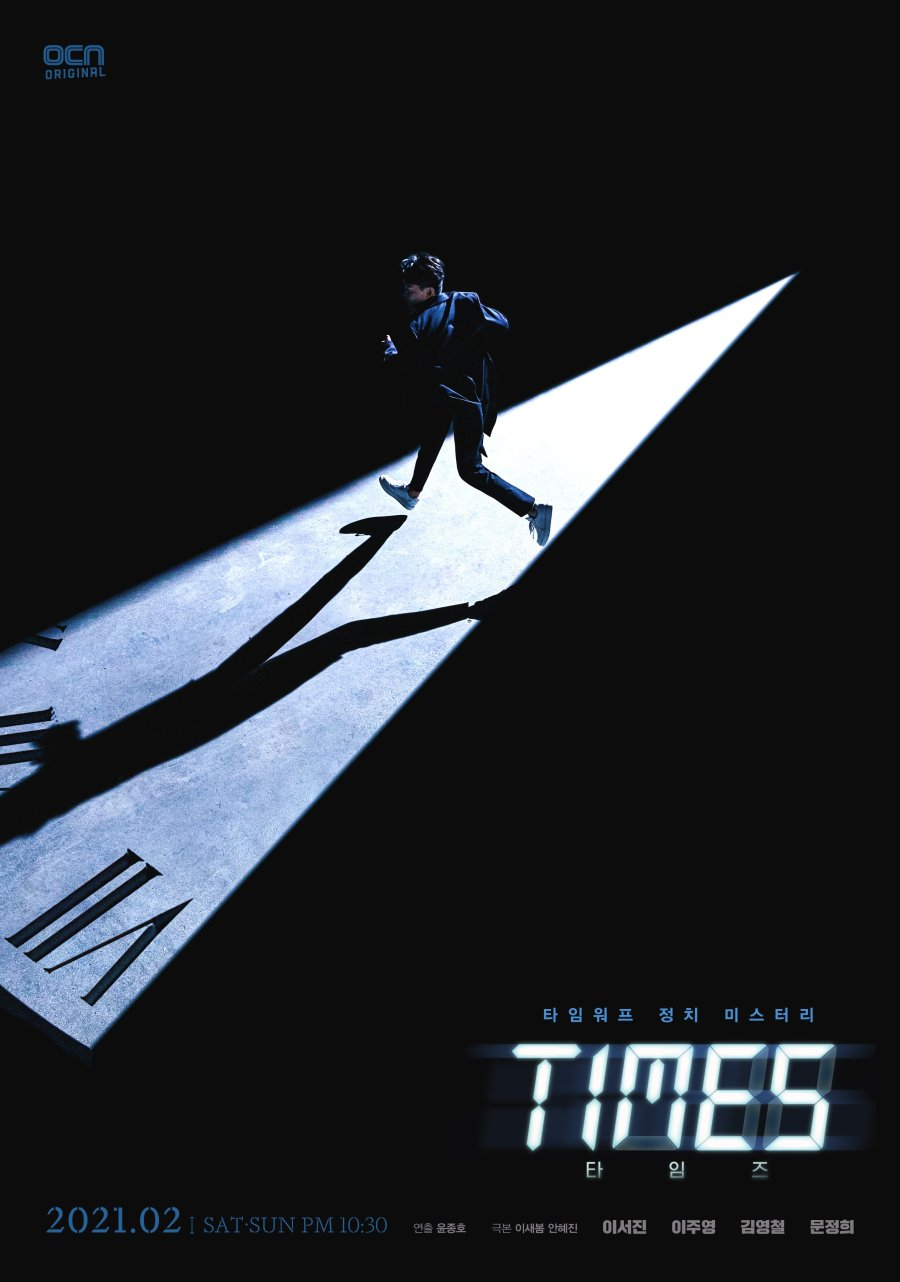 |  | 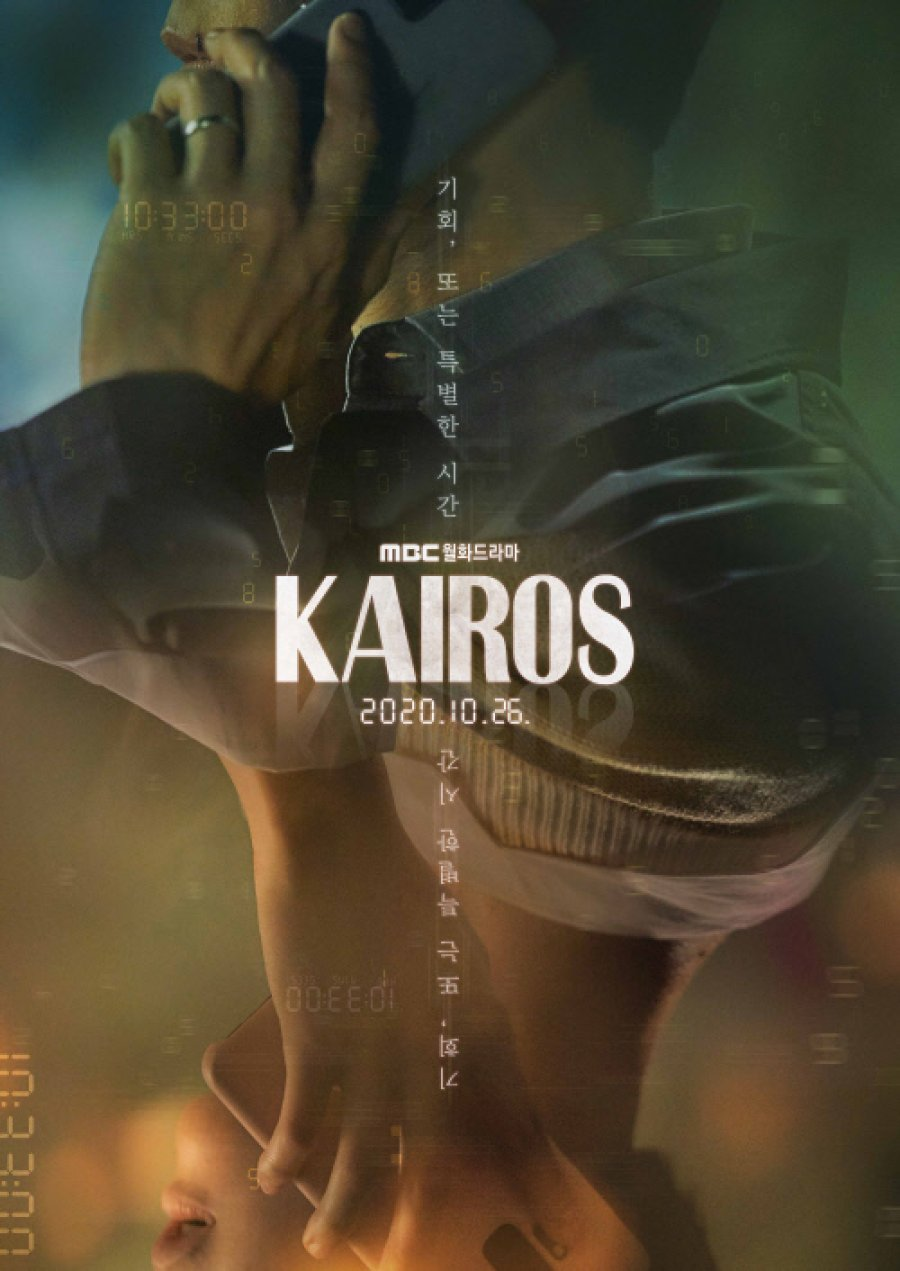 |
The K-drama industry is no stranger to trends. Spurred on by the success of a breakout drama in that genre, a wealth of shows, often featuring identical concepts, are steadily churned out in their wake. This move is often sparked by various industry players eager to satisfy the newly opened appetite within audiences. Some most notable examples of this include: the fantasy romance craze that proceeded Goblin and the stream of prosecutorial dramas that seemingly dominated 2016 through 2018; peaking with the release of Stranger.
The trend-like trajectory of prompts and productions can often (and does often) result in dramas with an uncomfortably low degree of separation in their stories or basic premises. This framework is one best suited to address the fighters who find themselves in the ring tonight.
If you've been keeping your eyes and ears peeled, (i.e. visiting Times' MDL page) you'd be somewhat aware of a slight argument happening amongst its smaller audience. Many have taken to labelling OCN's Times a bit too close for comfort to the recently concluded Kairos of MBC. It is under these conditions then that the first ever Dramafight! match up has been draw up. The ultimate test for these shows to weight it out or die trying.
Now without further ado it's time to get into the ring.

"A Call For Help" | 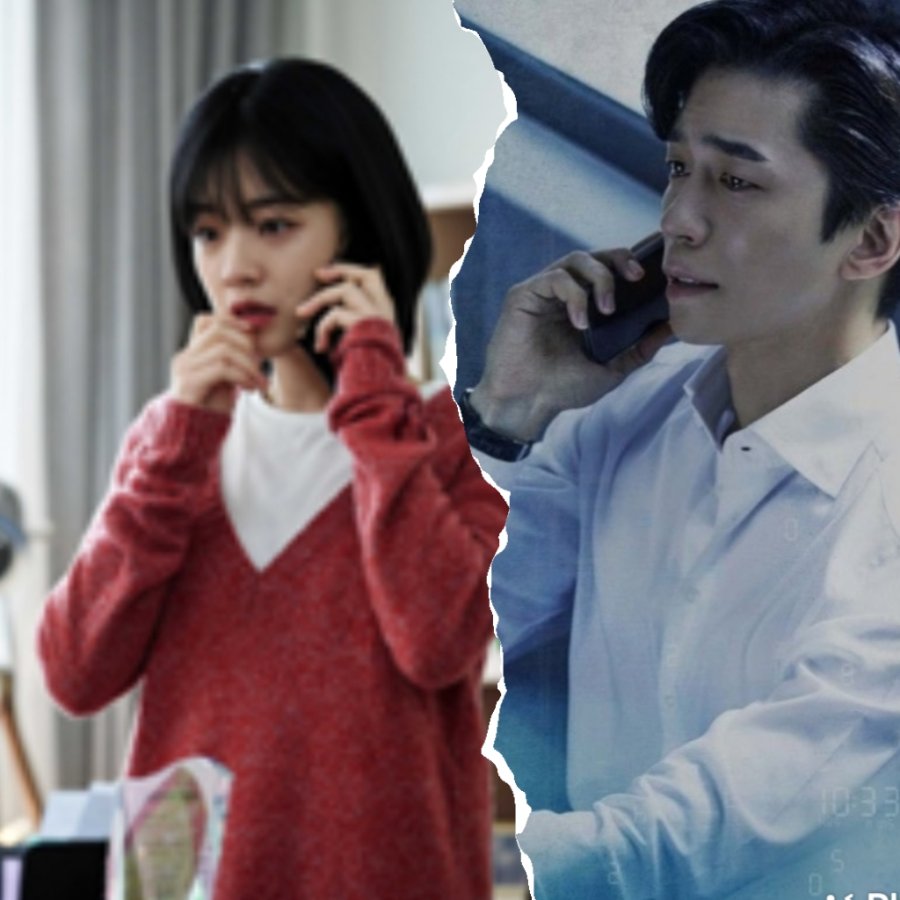 |
On their basic premises, Kairos and Times are all but tied. Both introduce leads mostly prevalent in different timelines. Upon the initiating event that causes the divergent timelines to cross, both characters meet with the dreaded first time squabbles that often ensue in any K-drama for it may only be called so if this occurs. Though admittedly, in this case, the absurdity of communicating one's self as being in the past or from the future makes this understandable. Ultimately, it is the person from the future in both cases realizing first and making a request of the protagonist in the past.
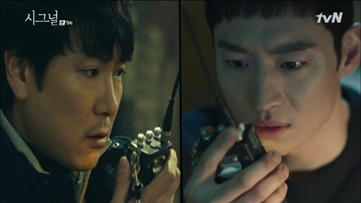 | Both Kairos and Times employ a kind of time slip, more closely defined as an offset time-frame device. Described more clearly, they both host a mechanism by which characters at different moments in time may communicate. In doing so they can prevent or change the course of events which happen in the future/present day. Now the concept isn't novel to either of these dramas nor even the first instance of this particular plot device being deployed in a K-drama. Perhaps the most well-known and arguably the first to popularize the concept in K-drama was none other than Signal. There, a detective in present day 2015 gets into contact with another detective decades prior through a mysterious walkie talkie and uses it to solve cold cases. |
Adding to that, Stein's Gate is another example of the time altering element though this time in another medium. Existing as both a visual novel and anime adaption, characters there exchanged messages with the past to avert catastrophic ruin in the future. | 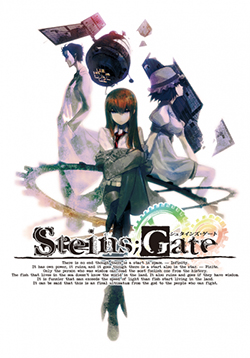 |
Interestingly, Kairos and Times seemingly take concepts from both our previous examples. Fundamentally, the time-altering elements used in both shows are different. How they interact with time is different and this is best perhaps embodied by the limitations placed on the ability in both shows.
For Kairos, the show's title best describes its limitation. "Kairos", of Greek origin, meaning the right, critical or opportune moment is the overlying limiter on its namesake show. Both leads in Kairos are constraint to a specific timeframe by which they may communicate vocally as well as transmit messages between them. The specific time itself is symbolic to both leads, this however is realized quite a way into the narrative.
In the case of Times, its time altering is hardly as constrained. The leads here can communicate nigh instantaneously and as a result, changes are quick and abode - be it a call or message. There is however a price, one revealed only later to the leads.
The limitations lead to different but equally interesting ways of approaching the conflict and its consequences in both shows and that takes us to the next round.

"Economies of Scale in Conspiracy" | 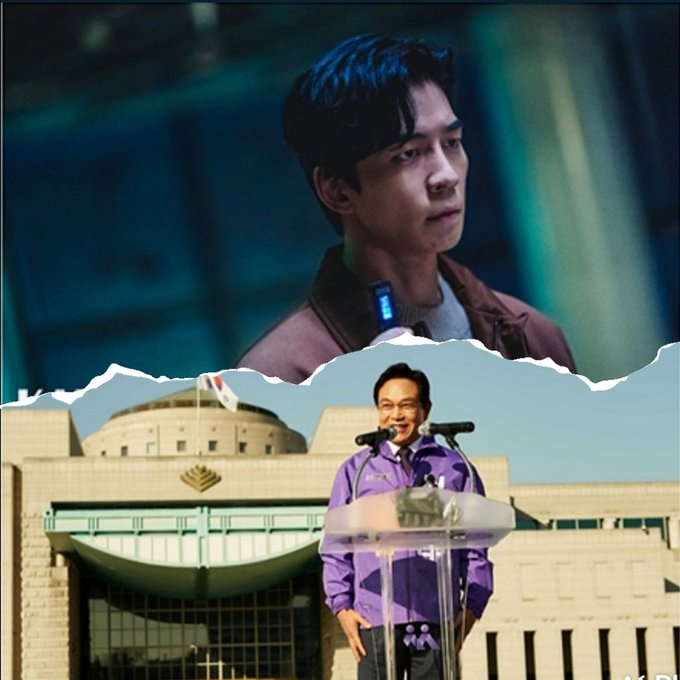 |
The major conflicts are initially centered on leads desperate to save a loved one from peril. It is in the amount of conspiracy at play behind each that enters the two stories into different weight classes. As such, let's send each to their corner of the ring.
 |  |
|---|---|
Kairos deals with a father desperately trying to save his family in the wake of a kidnapping, a conflict shared by the female lead. In the pursuit of this however, both stumble upon a conspiracy far deeper than previously thought. Nothing to the extent of a national or international conspiracy but corporate and so while the stakes are high they are high in a more personal sense. That is of course not to say that it is any less intense and gripping nonetheless. The scale of the drama increases incrementally as such and favors a slower, more mystery sleuthing oriented approach. Fittingly, the limitations on the time altering ability facilitates this. With a limited window for communication, the answers are only slowly and bitterly earned. As a result the actions leading to all out "resets" in the future are fewer (initially at least, the pace changes as the show closes in on the finale). | Times is certainly the more bombastic of the two. In its case, it is conspiracy of the highest level. Here the reporter daughter of a presumptive presidential nominee enters contact with another reporter in the pass to prevent his assassination. If Kairos felt more sleuth-hound-like, Times is more of a high octave thriller. Again the nature of its time altering limitations or the lack thereof helps create far more dynamic plot movements and earlier, too, say the first episode. In this, the episode count factor plays an obvious role as well. Its less than usual (though increasingly standard for OCN) 12 episode run asks for more in less episodes and the nature of its resets and time altering are fitting. |
Weighted off, the two are pretty hefty in their respective weight classes. Ascertaining a knockout contender is pretty much impossible though, as the forms these dramas are in are actually quite different. Another, perhaps final, round is needed to settle the score.

"Measuring the Might of MacGuffins" | 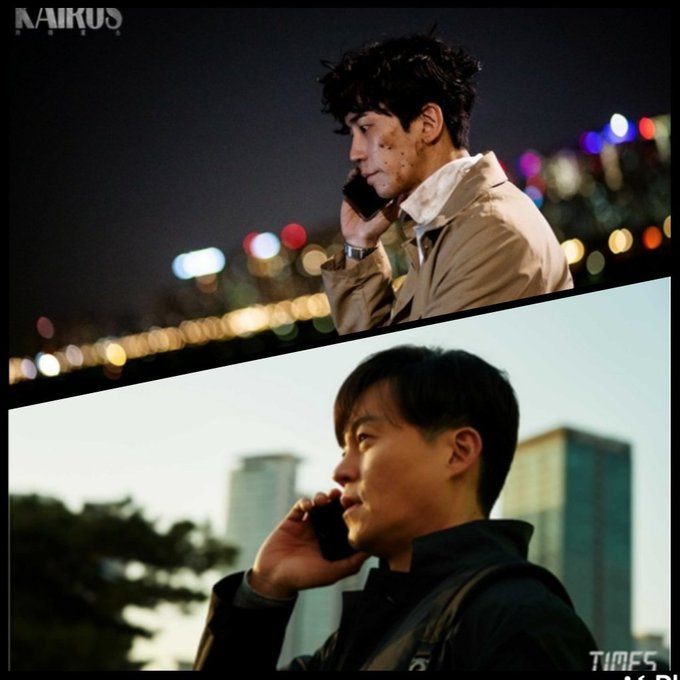 |
For both dramas, the MacGuffin of choice is a cellphone. Not the most mythical of choices but nonetheless effective in bridging across the space time continuum. Yet while they share it as a common tool, the nature of the bridging element helps in producing many of the differences in previously discussed.
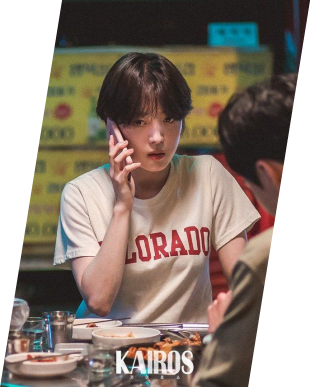 | In Kairos, first contact is made during a tense wait for the call of a suspected kidnapper. It is the phone of the deceased father of the female lead which inexplicably begins functioning that sets that show into gear. The connection between the leads is sold more as a destined/fated encounter. It serves as a more mysterious basis for the narrative. Aiding a slower investigational tone linked to previous events yet eluding the memories of both protagonists. Beyond the limitation of 10:33 (the Kairos for communication between the two), the cellphone has no other real limitations. Anyone else with knowledge of this ability may converse through past or present. Indeed, someone undesirable to the protagonists' goals does at some point in the series. The particulars of which I'll spare for the sake of spoilers. Ultimately that is foiled without much damage however. |
Conversely in Times, the link between the leads is established by the daughter of a presidential hopeful desperate to save him from assassination. With a time bridging mechanism far more open, the thriller atmosphere is assured. Yet it is the accessibility of it that truly set Times apart. Unlike Kairos, the link is established not by some destined fate but by pure coincidence. A poetic coincidence at that. The ability is limited to that specific build of cellphone with only a limited number available. Who has access to the others and how that affects the story... (go watch the show ¯\_(ツ)_/¯ ) Additionally, unlike Kairos, the ability to influence the pass is numbered. The almost limitless communication comes at a price and when revealed to the leads, the tension is doubled. Once seemingly unlimited wishes are numbered and the margin for error is tightened. | 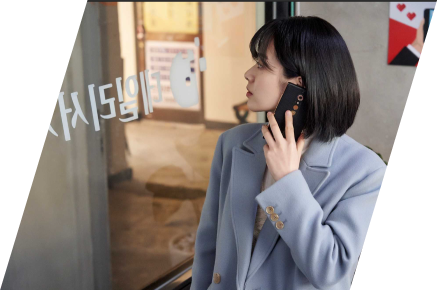 |
 With the final bell rung, our fighters have duked it out to the end. Time for the judges to make the final decision. Are the contenders truly no different from one other? Or are the different forms and fighting styles enough to set them apart? This referee's conclusion is the latter.
With the final bell rung, our fighters have duked it out to the end. Time for the judges to make the final decision. Are the contenders truly no different from one other? Or are the different forms and fighting styles enough to set them apart? This referee's conclusion is the latter.
Thanks for tuning in to the first ever Dramafight! and please make sure to check out both these exceptional dramas. Times is still currently airing at the time of writing so let's hope they don't fudge it up before it ends. Fingers crossed.
Next time in the ring: Joseon Exorcist vs Kingdom.


![Kontent Gyeongchal [Cold Case]- Partners for Justice](https://i.mydramalist.com/2AopR_2c.jpg)








